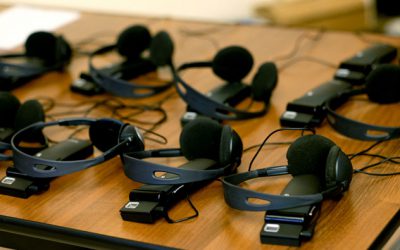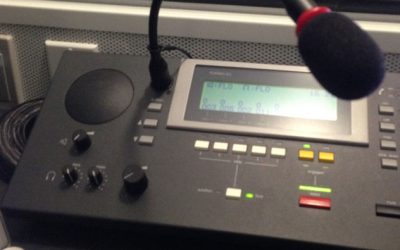The COVID-19 pandemic has thrust healthcare providers into unprecedented upheaval. As hospitals and clinics adapt to new safety rules, infection risks, and staff shortages, effectively communicating with diverse patient populations presents an additional challenge. This is where telephone interpretation services come in. By providing on-demand remote interpreters reachable by phone, clinics can continue facilitating critical patient-provider dialogues while also maintaining social distancing protocols.
This article explores key reasons why telephone interpretation is ideal under the current circumstances and indeed, provides long-term benefits extending beyond the pandemic. As we’ll discuss, it allows healthcare organizations to communicate with more patients in their preferred languages, aligns with COVID-19 visitation policies, reduces costs, connects staff to qualified medical interpreters, and incorporates safeguards to protect sensitive health information.
Enables Communication with Diverse Patient Populations
Even before COVID-19, telephone interpretation enabled healthcare providers to serve patient populations with limited English proficiency. It taps into a network of thousands of qualified interpreters covering over 240 languages.
For clinics lacking frequent in-person requests for niche languages, this on-demand access brings flexibility. Healthcare staff can launch interpreter-assisted calls effortlessly for reliable exchanges with patients speaking languages from Arabic to Kiswahili.
This remote service breaks down communication barriers that might otherwise obstruct patient care and risk medical outcomes. Especially during global crises like the coronavirus pandemic, connecting with diverse communities through dedicated phone interpreters fosters trust. It signals that regardless of native language abilities, health systems stand ready to inform, advise, and treat all populations equitably.
Facilitates Social Distancing Rules and Restrictions
In line with COVID-19 visitation policies, telephone interpretation aligns seamlessly with restricted access mandates ubiquitous in health systems. Hospitals and clinics faced with infection control protocols have necessarily limited entry of non-essential staff, vendors and visitors. On-site commercial interpreters fall into gray areas under these evolving policies. Rather than navigating logistics of in-person visits, telephone interpretation services enable smooth remote support.
Within hospitals, clinics and medical offices, frontline healthcare workers continue communicating with limited English speaking patients over the phone. Commercial telephone interpreters bridge exchanges in real-time, facilitating history taking, assessments, diagnoses and discharge instructions.
The remote nature of telephone interpretation fades seamlessly into telehealth and telemedicine consume dramatically under COVID-19 rules. For healthcare systems struggling to balance infection control and patient care access, it simply enables necessary services to continue unhindered 24/7.
More Flexible and Cost-Effective Than In-Person Services
In addition to aligning with public health realities of the ongoing pandemic, telephone interpretation offers inherent advantages that healthcare systems can leverage right now and into the future. The on-demand nature provides flexible access without needing to schedule interpreter visits in advance. Healthcare staff can dial interpreters within seconds to join patient calls as needed. This allows more nimble adjustments to unpredictable daily changes and emergent healthcare needs.
Instead of blocked hour-long bookings, telephone interpretation services implement pay-per-minute fees based precisely on actual interpretation time. The costs and resources dedicated to telephone interpreters scale instantly based on real-time patient demand across a health system. Compared with site visits, remote telephonic services prove significantly more cost-effective for most hospital settings and clinical scenarios. Healthcare finance teams increasingly recognize these efficiencies even as their duty of quality care for all remains unchanged.
Delivers Accurate Medical Interpretations
Within telephonic interpretation companies, healthcare organizations can access interpreters specifically oriented to medical contexts as opposed to general commercial transactors. Leading telephone interpretation firms screen medical interpreters for healthcare familiarity checking rigorously for full fluency in niche medical terminology. These services connect clinicians and patients to interpreters accustomed to health settings from prior professional experience.
With these qualified medical interpreters on call to assist remote telephone exchanges, physicians and nurses can relay accurate information to limited English proficiency patients. They can also capture detailed medical histories and descriptions of health conditions from patients through fluid interpreter interactions.
Studies show message accuracy improves significantly when telephone interpreters possess health-specific training and experience. As healthcare providers weigh upsides of remote services under COVID-19 rules, this assurance of reliable medical exchange proves indispensable.
Supports HIPAA-Compliance and Patient Privacy
For healthcare organizations, another advantage of telephone interpretation services is incorporation of robust privacy infrastructure comparable to in-house efforts. Leading interpretation firms implement strict controls around data security, transmission protocols and access policies to comply with HIPAA and protect sensitive patient health data. Physicians can confirm details like diagnosis, treatment plans and medications with patients, relying on background protections rather than exposing new risks.
Interpreters follow stringent guidelines preventing the retention of patient information and allowing access only on authorized active calls. With the pandemic introducing new populations to telehealth and telephone-facilitated care, it remains pivotal that remote access does not undermine existing standards around ethical information handling. For medical practices lacking resources to overhaul internal policies rapidly, experienced telephone interpretation services extend their rigorous measures toward this priority.
As healthcare systems adapt to operate amidst the COVID-19 pandemic, telephone interpretation services enable reliable communication with diverse patient populations while also aligning with public health protections.
This mode of support facilitates ubiquitous infection control and distancing policies while still connecting limited English speakers to quality care. It expands patient access through flexible language support operating on-demand 24/7. For healthcare administrators eyeing lasting upgrades beyond this crisis, telephone interpretation equally proves its value through efficiencies and tighter integration with telehealth infrastructure. Consider taking advantage of leading telephonic interpretation firms to reinforce both patient experience and responsible spending through turbulent times ahead.





0 Comments